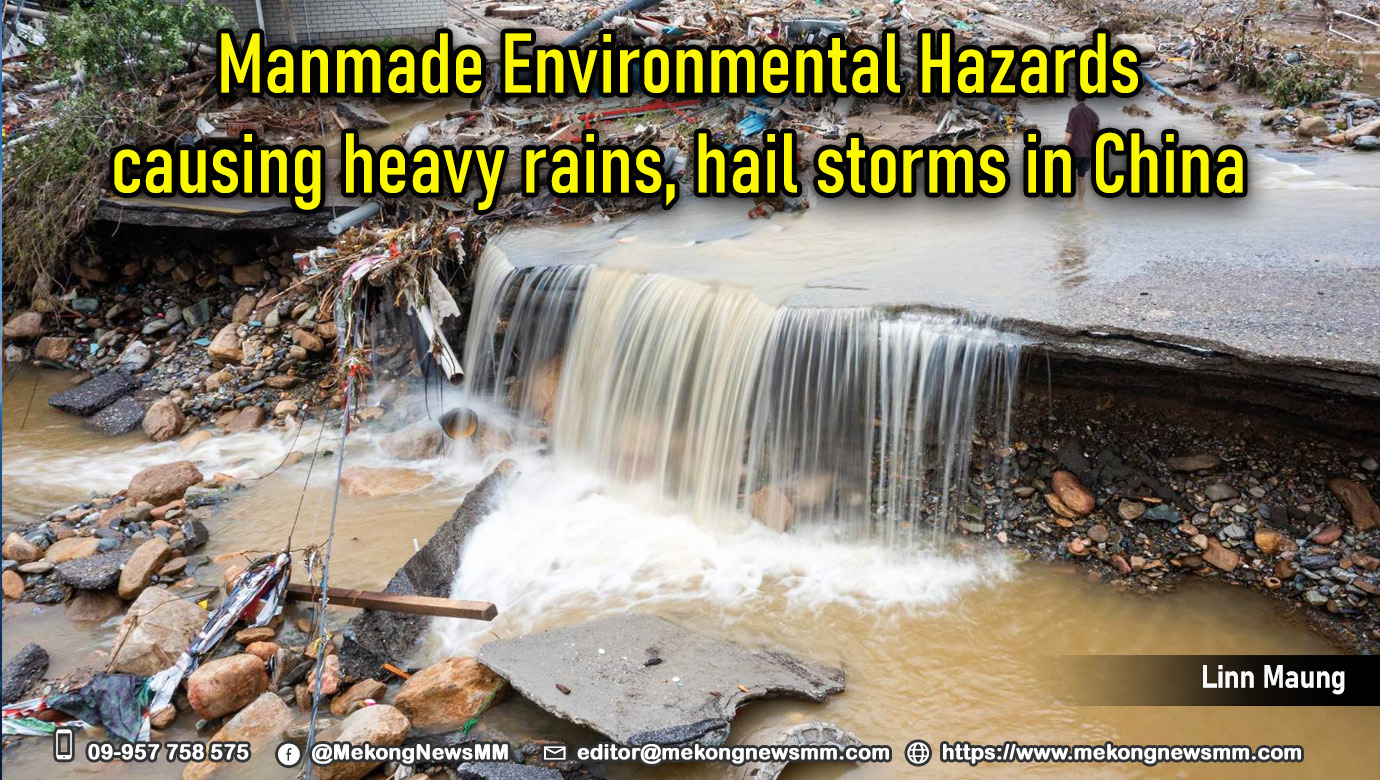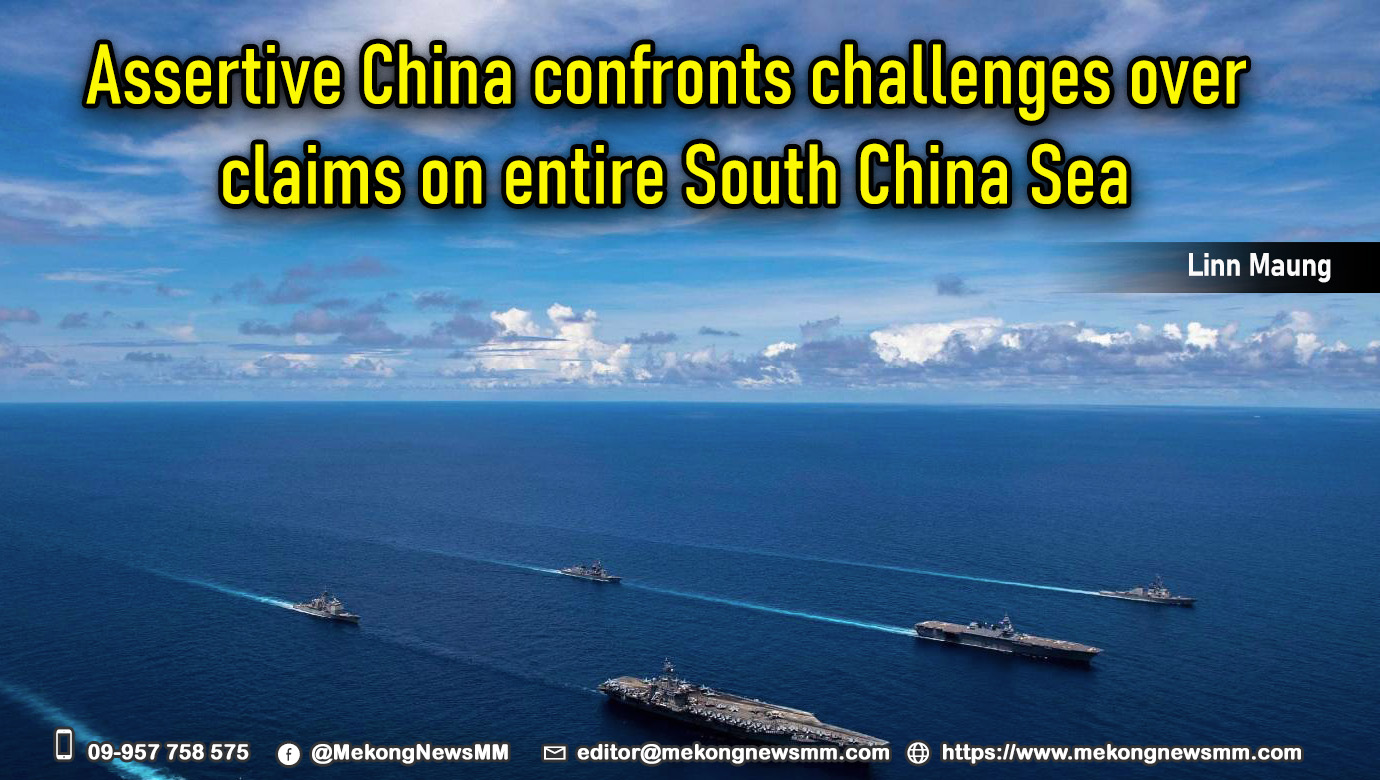Linn Maung
As China’s property sector crisis continues to spiral out of control, the Chinese Communist Party’s (CCP) response has been woefully inadequate, reflecting a concerning pattern of mismanagement and failure to address systemic economic issues. The recently announced “ white lists” scheme, touted as a solution to the woes plaguing the real estate industry, is little more than a Band-Aid on a gaping wound, leaving the underlying problems unresolved and setting the stage for further economic turmoil.
The “ white lists” approach, which involves local governments identifying failed property developments for special financing from state-owned banks, is a mere drop in the bucket compared to the staggering scale of the crisis. With only 162 projects in 57 cities receiving a paltry $17.2 billion in funding, this initiative pales in comparison to the estimated $300 billion in debt amassed by the embattled Evergrande Group alone, not to mention the countless other developers teetering on the brink of collapse.
This myopic attempt to selectively revive a handful of stalled projects does nothing to address the root causes of the property sector’s downfall. It fails to resolve the colossal debt overhang that continues to constrain the country’s financial system, hampering its ability to support economic growth and expansion. Furthermore, the “ white lists” do little to restore consumer confidence, a critical factor in reviving the housing market and spurring demand for new property purchases.
The CCP’s persistent inaction and failure to implement comprehensive reforms have exacerbated the crisis, allowing financial and confidence problems to metastasize unchecked for years. Beijing’s abrupt withdrawal of support for property development in 2020, a stark reversal from its previous policies encouraging easy credit and rampant overbuilding, left developers and buyers reeling with no time to adjust, precipitating the current turmoil.
The legacy of this ill-conceived policy shift is a glut of unsold properties, with an estimated 7 million unoccupied apartments languishing on the market. Given China’s shrinking population, it is unlikely that these vacant units will ever generate sufficient cash flow to service the outstanding debt incurred during their construction.
Yet, the CCP’s “ white lists” initiative does nothing to address this looming problem, leaving a ticking time bomb of overbuilding that will continue to undermine the property sector’s recovery.
Beijing’s rumored consideration of a government takeover of the residential property market, while more ambitious in scale, is equally misguided and fraught with potential pitfalls. Such a move would merely disguise the crisis, sweeping the debt overhang and overbuilding issues under the rug without providing a lasting solution. Additionally, a state takeover would introduce a host of new challenges, including the potential for corruption, inefficiency, and a further erosion of market principles.
The CCP’s failure to implement substantive reforms and address the root causes of the property sector’s woes is a glaring indictment of its economic stewardship. Rather than taking decisive action to resolve the crisis, Beijing has chosen to prioritize optics over substance, implementing half-measures that do little to alleviate the underlying problems.
As the crisis deepens and the economic fallout intensifies, the Chinese people will bear the brunt of the CCP’s ineptitude. Declining property values will erode household wealth, constraining consumer spending and undermining confidence in the nation’s economic prospects. The ripple effects will reverberate throughout the economy, stifling growth and exacerbating existing vulnerabilities.
It is time for the CCP to abandon its piecemeal approach and take bold, decisive action to address the property sector crisis head-on. This must involve implementing comprehensive reforms to address the debt overhang, overbuilding, and lack of consumer confidence plaguing the industry. Failure to do so will only prolong the economic pain and further undermine the CCP’s credibility as an effective steward of China’s economic future.
The property sector crisis is a stark reminder of the inherent flaws in the CCP’s centralized economic planning and its inability to respond effectively to market forces. Until Beijing embraces meaningful reforms and implements policies that prioritize long-term economic stability over short-term political expediency, China’s economy will remain mired in turmoil, and the people will continue to suffer the consequences of the CCP’s mismanagement.
#MeKongNews










